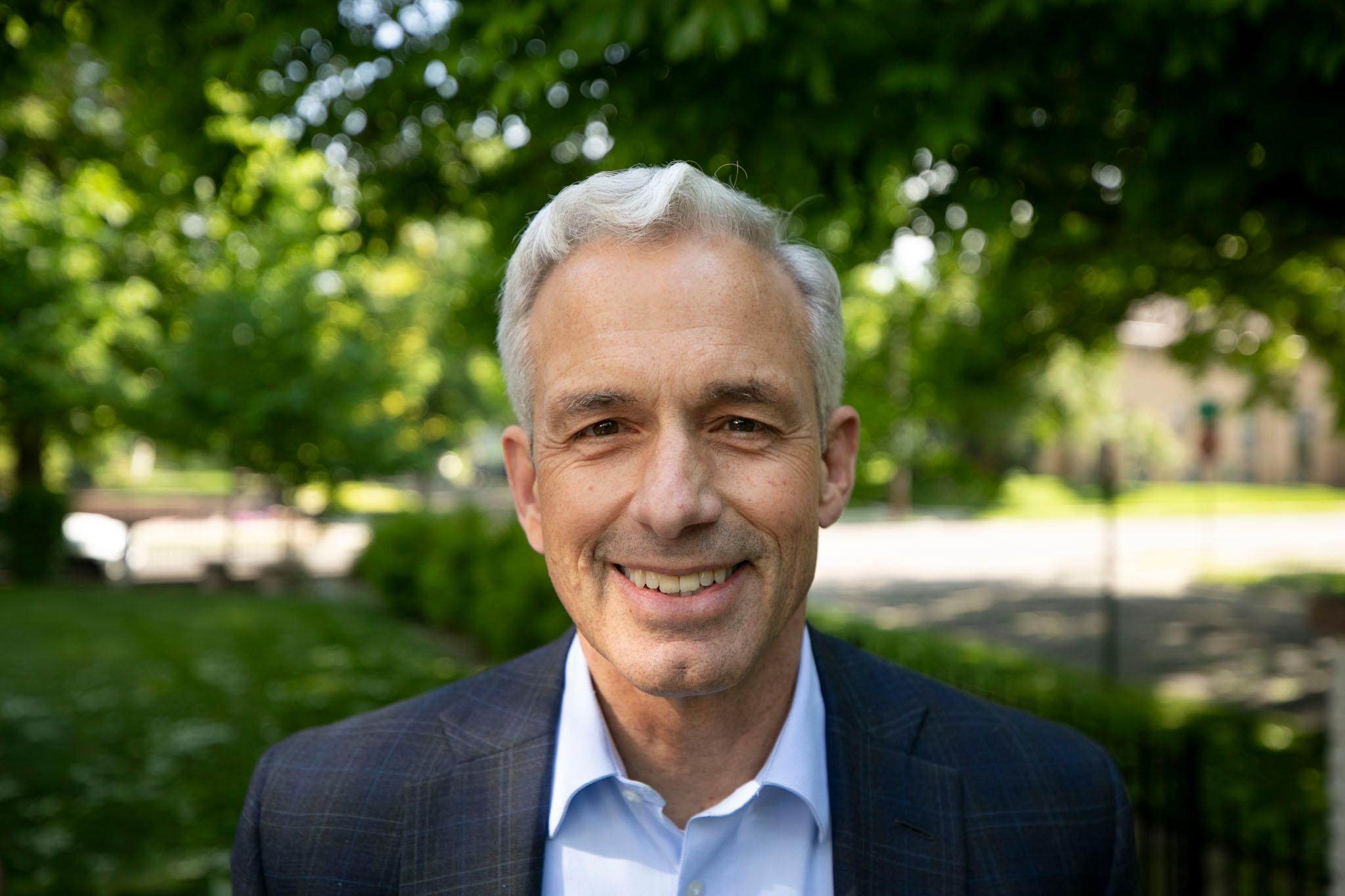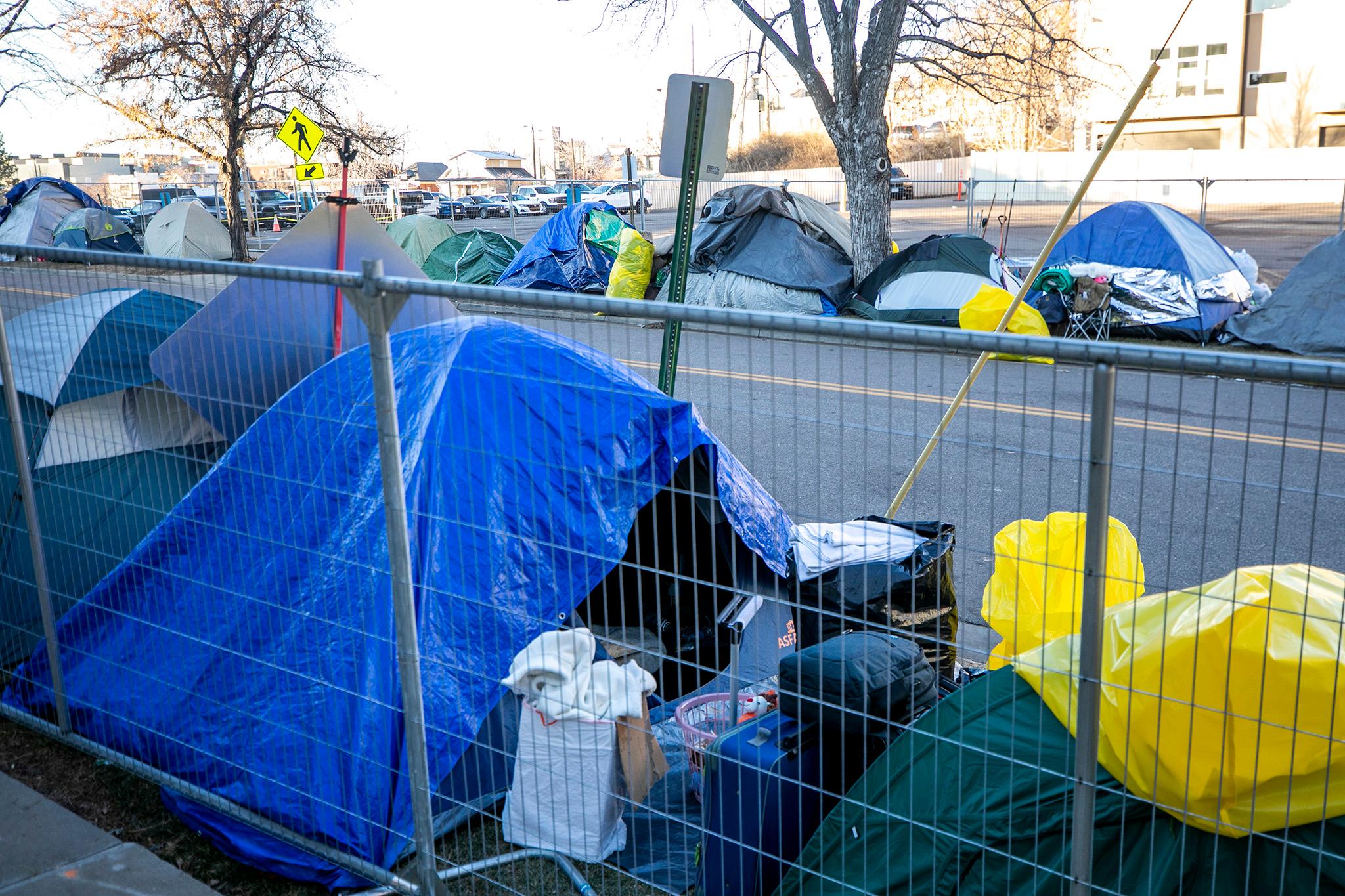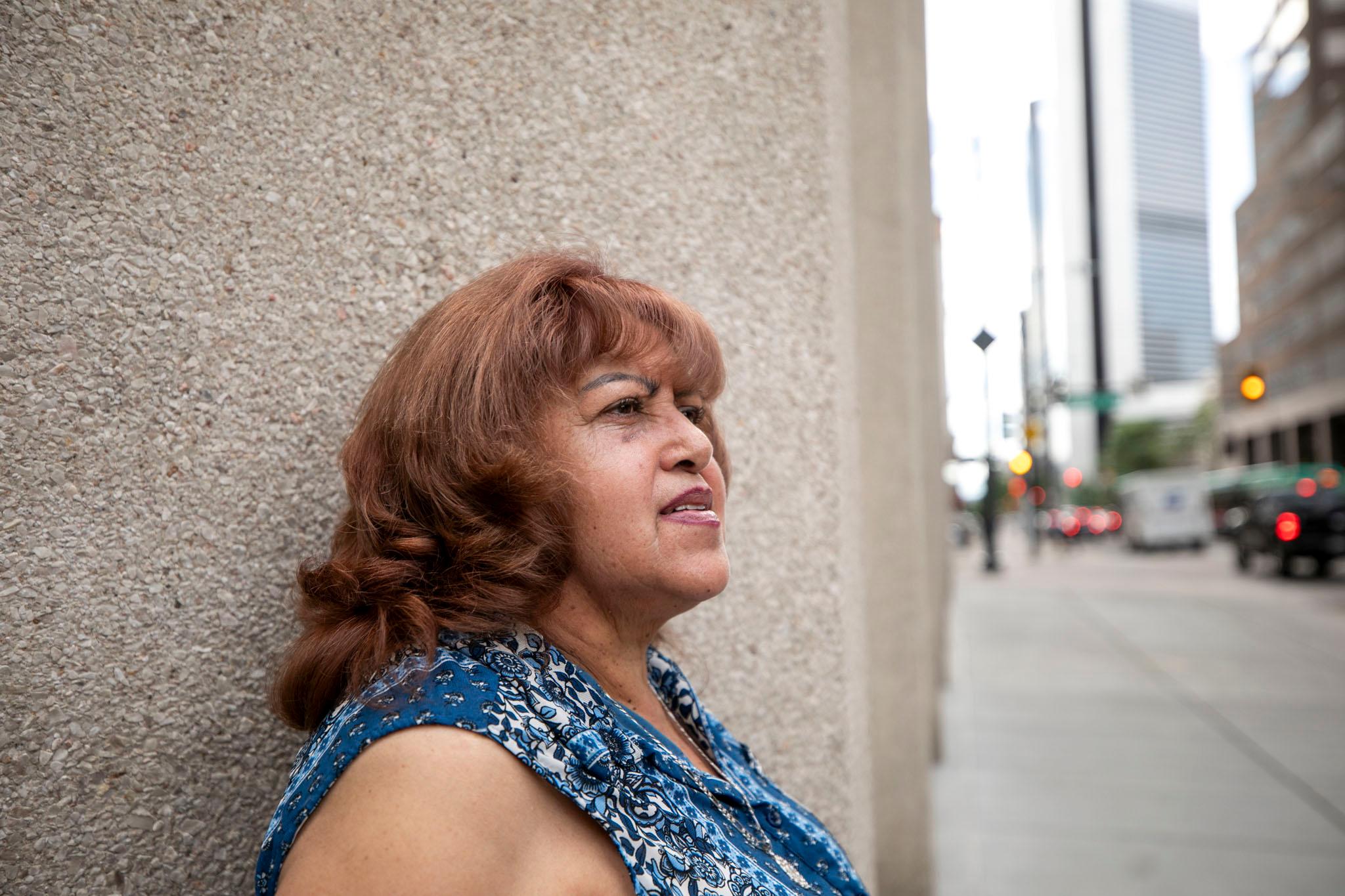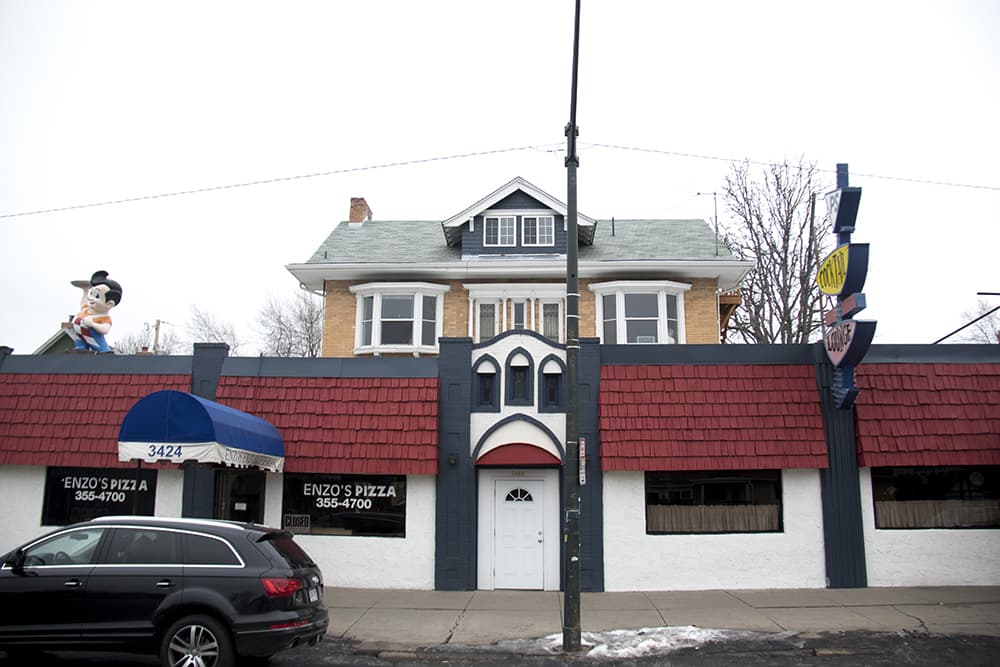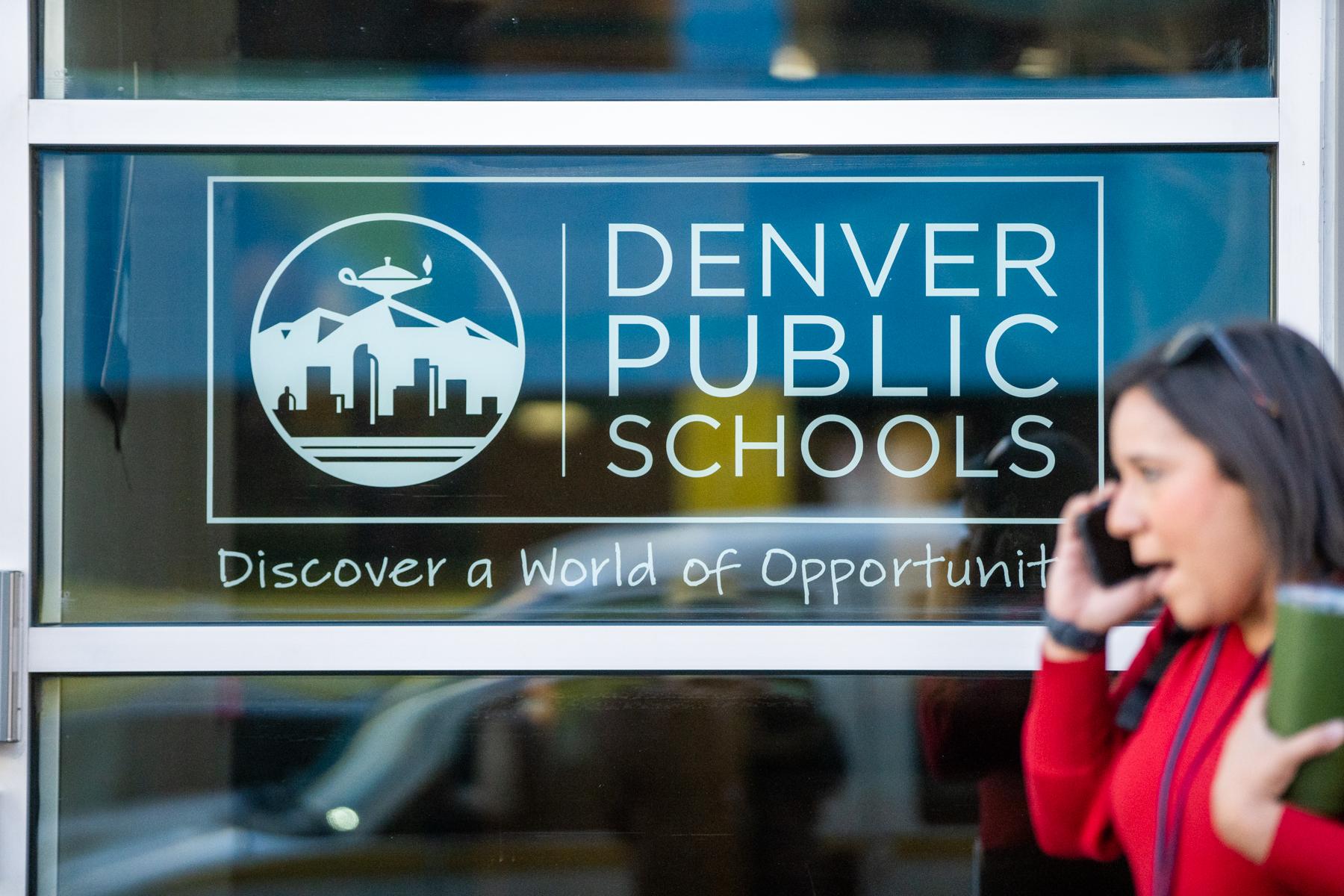John Walsh was four years into his tenure as top federal prosecutor in Colorado when he was confronted by the Pueblo district attorney at a meeting in Colorado Springs.
"I suppose you know, the United States of America doesn’t exist south of the El Paso County line,” complained Pueblo DA Jeff Chostner.
Walsh laughed, but then pressed him:
“What do you mean?”
“Well, you aren’t doing any prosecutions down here … you guys aren’t taking care of anyone south of Colorado Springs,” Chostner said.
Walsh listened to Chostner, whose small office was besieged with cases of violent crime, drug crimes and human trafficking.
And then he took action, Chostner said in an interview.
Walsh embedded a federal agent into the Pueblo Police Department and he launched a warm relationship between the Denver-based U.S. Attorney’s Office and the Pueblo district attorney’s office that persists today, several appointed U.S. Attorneys later.
“There is some pushback in some jurisdictions to the feds, like no, we’re handling our cases, but that wasn’t the case with me,” Chostner said. “I wanted federal assistance and he was more than willing to help me out.”
Similar stories are repeated at every stop in Walsh’s career. Colleagues describe him as a steady Eddie, a buttoned-down, wonkish prosecutor who isn’t going to rock the boat, but is willing to listen and adjust his approach to enforce the law.
But that embrace of the status quo also has detractors. Walsh presided over the U.S. Attorney’s Office for the state at a time when law enforcement was under increasing scrutiny for its use of lethal and excessive force, particularly against people of color, but before the murder of George Floyd shone a national spotlight on that concern.
During his tenure, Walsh never initiated a federal prosecution of a law enforcement officer for violating a civilian’s civil rights. That included declining to intervene in three high-profile questionable deaths caused by DPD or the sheriff department that led to substantial lawsuit settlements. He also didn’t challenge a Justice Department decision not to take on the cases of several DPD officers who severely beat Alex Landau, now an activist for victims of police violence.
For his part, Walsh said civil rights decisions are typically made in Washington, but he acknowledged that he didn’t push for federal intervention in the cases.
He has promised in campaign forums to hold police accountable as Denver DA.
“We’ve learned a lot in the last 10 years,” he said. “I would say my commitment to that is very deep, especially since 2020, I think we all know how incredibly important that is.”
Walsh’s decision not to challenge the Justice Department position remains frustrating for Landau.
“My major concern there is: Why not?” Landau said. “Did I not endure enough pain, did I not endure enough brutality for them to feel the need to challenge the Department of Justice that a civil rights violation didn't take place?"
A rapid rise
Walsh, 63, was born in New York but moved to the Baltimore suburbs when he was young. At the start of middle school, his parents moved from Maryland to Colorado and settled in the Greenwood Village/Centennial area where Walsh attended Cherry Creek High School.
He initially thought he wanted to be a doctor, and so attended one year at Rensselaer Polytechnic Institute before deciding that it wasn’t for him. He transferred to Williams College, in western Massachusetts. After graduating, he got into Stanford University’s law school, where he met his wife, Lisa Christian, who is also an attorney and worked at the Department of Justice as a civil assistant U.S. Attorney. She now is general counsel at a wind energy company.
After graduating law school, Walsh landed a prestigious clerkship with Judge J. Skelly Wright on the U.S. Court of Appeals in the District of Columbia. He followed that by taking a job with the U.S. Attorney’s Office in Los Angeles.
He quickly rose in the federal prosecutor’s office to run the major frauds section of the criminal division and found himself at ground zero for the nation’s savings and loan crisis.
And Walsh, an early 30-something lawyer, was soon handling a case involving a sitting governor.
Then-Arizona Gov. Fife Symington’s companies had ties to a development project that had backing from a failed savings and loan. Public records obtained by an Arizona news publication showed that Symington had valued his real estate holdings higher than it actually was when applying for a loan.
Symington was eventually prosecuted and convicted on 7 of the 21 counts after Walsh had left the case — a conviction later overturned on appeal due to judicial error. Then he was pardoned by President Bill Clinton before he could be retried.
For Walsh, those years had high-profile losses, too.
In 1994, he lost a high-profile case against Thomas Spiegel, who ran a failed savings and loan business. The L.A. Times called it a crushing defeat for the federal government, at the time. Spiegel was connected to Michael Milken, the “junk bond king” who years earlier pleaded guilty to felony charges for violating securities laws.
Spiegel always proclaimed his innocence and a jury needed little time to exonerate Spiegel on all charges.
After the trial, Spiegel accused Walsh and other prosecutors of carrying out a vendetta against him because of his lavish salary. Walsh, at the time, dismissed it as “absolute hogwash,” according to the L.A. Times. He added in a 1994 story, “I have no doubt that it was the appropriate thing to do to bring this case, and in fact it had to be brought.”
Walsh and his wife, who was from Reno, made the decision shortly after that to find jobs back in Denver. They had always wanted to live and raise a family in the city. He has three adult children in their 20s.
Upon settling in the South Park Hill neighborhood, Walsh started his private practice career at Holland and Hart.
Becoming US Attorney for Colorado
In the late 1990s, Walsh served as an on-air legal consultant for CBS News during the Timothy McVeigh trial, given his federal prosecutorial experience.
He was frequently called upon to explain the legal maneuvers between defense attorneys and the Department of Justice and thought the experience of being on a journalistic deadline challenging and fun.
Walsh then moved to a smaller firm, Hill and Robbins, where he focused on government investigation responses and complex litigation. He also ran for district attorney in 2004 — a time, he said, that the city’s residents were concerned about crime but also how the police responded to critical incidents.

Walsh, who called himself “the new kid on the block” in 2004, lost that primary race 20 years ago to Mitch Morrissey, who served three terms as Denver’s district attorney.
Walsh stayed at his firm for another few years when he got the call that he was being nominated by President Barack Obama to be Colorado’s U.S. Attorney.
At that time, Walsh was praised by Republicans and Democrats alike for his experience and affability.
“John is very well-qualified candidate for this position,” said John Suthers, a Republican U.S. Attorney who served under the George W. Bush administration and has also been Colorado’s attorney general, a district attorney and the mayor of Colorado Springs. “I urge the U.S. Senate to move to swiftly confirm him to this important post.”
A complex litigator
By the time Walsh was confirmed and started the job in 2010, the nation was reeling from the financial crisis.
And Walsh found himself presiding over well-worn turf he had worked on and known for years: financial fraud.
“Think 'The Big Short,' the movie,” Walsh said in a recent interview with a smile, referencing the 2015 Oscar-winning docu-drama that attempted to explain the housing crisis through actors like Brad Pitt and Steve Carell. “There were false claims act cases and the U.S. Attorney’s offices around the country, including here in Colorado, were able to recover really tens of billions of dollars through a whole series of cases against JP Morgan, Citibank, Credit Suisse and all of that.”
Walsh said he’s most proud of a major case against Citigroup he worked on with the New York U.S. Attorney that resulted in a $7 billion settlement from the financial services company. That came after Citigroup packaged and issued fraudulent residential mortgage-backed securities that contributed to the housing crisis that led to the Great Recession.
Walsh acknowledges that much of his career has been spent on cases way too complex to explain on a campaign flier. In debates and forums with Joseph in the past several months, she often stresses that she’s the one with the rich experiences in state prosecutor offices.
Walsh swats that criticism away.
“I know this is something that in the context of the DA's race has come up multiple times, and that is, especially early in my career, I tried a really broad range of cases. It wasn't just all white-collar stuff,” he said. “It was assault cases, it was drug cases, it was weapons cases, it was immigration in Los Angeles … I've tried dozens and dozens of cases.”
Navigating marijuana policy
In 2012, while Walsh was in his post in Denver, Colorado voters passed a state law that was directly at odds with existing federal ones: they legalized marijuana.
Then, a year later, the Obama administration issued “the Cole memo” which outlined how the federal government would enforce federal drug laws, while still allowing Colorado and Washington state to carry on with the wishes of the voters.
It was a complicated time for Walsh, who was living in Denver not far from East Colfax Avenue, as he tried to monitor the city’s blossoming pot shop industry in light of federal law.
Like he has handled dicey things in the past, Walsh built relationships with police and began a series of community meetings on the topic.
“With every decision, he had the same approach. Learn as much as you can from the people who really know the issue and are impacted by the decision, then set a strategy based on what you learn, put the right people in charge of executing it and keep them accountable,” said Bob Troyer, who succeeded Walsh as U.S. Attorney in the beginning years of the Trump administration.
At the time, law enforcement and some residents were alarmed that dispensaries were showing up right across the street from schools, but the entrepreneurs just getting off the ground felt victimized by the tug-of-war between state and federal drug laws
Walsh, with permission from the Department of Justice at the time, used an existing federal “school drug free zone” statute to send warning letters to 25 dispensaries located close to schools, telling them they would have to move or they would be shut down.

At the time, lawyers representing the pot shops were outraged and called it a local-control issue, arguing that the federal government was imposing its moral authority on communities that had carefully considered ramifications and crafted their own rules.
“I think it’s absolutely offensive that John Walsh is usurping and interfering with the power of the state on this issue,” said Lauren Davis, a Denver medical-marijuana attorney at the time to the Denver Post.
Then-Boulder District Attorney Stan Garnett even wrote Walsh an open letter in the city’s newspaper asking him to leave Boulder alone.
Garnett told reporters at the time that the U.S. Attorney’s office should focus its efforts on “terrorism, serious economic crime, organized crime and serious drug dealing.”
Despite the personal flaps and low-level newspaper sparring, Walsh considered the entire experience “successful.”
“In the end, they moved and we did not need to escalate to enforcement action,” he said.
And Garnett has officially endorsed Walsh in this race.
Little appetite to intervene in police violence
During Walsh’s days in the top federal prosecutor job in Denver, the city’s police department and sheriff’s office had a slew of violent encounters with people of color.
That included the deaths of Marvin Booker in 2010, Jessica Hernandez and Michael Marshall in 2015 and the beating of Alex Landau in 2009, a case that stretched into Walsh's tenure as U.S. Attorney.
In each of those cases, all of which generated jury or civil settlements to the families, then-DA Morrissey declined to prosecute any of the officers responsible.
And Walsh, whose agency had the power to prosecute law enforcement officers found to have violated someone’s civil rights while on duty, also declined to take up any of these cases.
Part of that was process, Walsh said.
The final decision on whether to charge an officer with a federal crime usually lies with the Civil Rights Division at the main justice offices in Washington D.C.
But he acknowledged that wouldn’t have precluded him from getting involved in any one of those cases.
“But I think if you looked around the country … you’d see the vast majority are civil rights division cases, not U.S. Attorney's offices,” he said. “At the end of the day, the civil rights division makes a decision. The U.S. Attorney could theoretically express an objection, but that doesn’t happen all that often.”
In 2009, Landau was beaten by Denver Police officers after a routine traffic stop. He was a college student at the time. He sued the city and eventually received a $795,000 settlement. The Department of Justice confirmed that lawyers looked into a federal case against the officers, two of whom were fired for other misconduct later. But they ultimately decided not to charge anyone in the case.
Walsh said the civil rights division concluded not to charge and he didn’t challenge it at the time.
Booker was an unhoused street preacher with mental health issues who was picked up on minor charges and taken to the Denver County Jail in 2010 — the same year Walsh started his position as U.S. Attorney.
What does the Denver District Attorney do?
The Denver District Attorney’s Office prosecutes defendants accused of state crimes that occurred in the city and county of Denver. The office has about 250 employees, about 85 of whom are attorneys, while the rest are investigators and support staff.
The office prosecutes about 13,000 cases per year in felony, misdemeanor and juvenile court. The DA’s office also has an appellate division responsible for appealing or defending cases before appellate courts, including the Colorado Supreme Court.
Specialty units dealing with cases involving drug or mental health problems with defendants or specific crimes like domestic violence, gang crimes or human trafficking also work in the office.
But much of the work involves making charging decisions on cases presented to the office by Denver Police, then following up by prosecuting those defendants.
He died while being restrained and shocked by deputies when he reached to put on his shoes. His family sued Denver in federal civil court and received a $6 million settlement. Morrissey again declined to prosecute any of the sheriff’s deputies involved that night.
Denver attorney Mari Newman represented Booker’s family after the street preacher was killed in the Denver jail. She can’t remember if she ever spoke to Walsh directly about the case, which occurred shortly after the new U.S. attorney was sworn into office. But she knows she lobbied the Justice Department to take action and was disappointed when they didn’t.
“The largest parts of the verdict were part of the punitive damages findings against the individual wrongdoers,” said Newman, who is not endorsing anyone in the Denver DA’s race. “This was the jury’s statement that they had acted with such reckless disregard for Marvin’s protected rights that it resulted in the jury award. That’s the exact conduct that should have been prosecuted.”
Walsh said he didn’t have any specific recollection of the decisions made at main justice regarding Landau’s or Booker’s cases, but he said that as an elected Denver district attorney, he would have a lot more power to review them.
“There is a certain deference given to the civil rights division decisions because they’re the experts,” Walsh said. “But in the district attorney’s job, you have an obligation to look in the cases in the first instance before they even get to the federal side.”
It still bothers Landau, now an activist against police violence.
"I would wonder if either this was a lack of gumption or was this a personal bias towards the case in and of itself,” Landau said in an interview with Denverite. “Either way, the community of Denver deserves somebody who is not afraid to challenge and stand up for what's right for the sake of justice."
Walsh’s lack of action during those years has not deterred some of the highest-profile names in local civil rights cases from endorsing him. Qusair Mohamedbhai, who has won some of the largest cases in state history around police misconduct, is among them.
Mohamedbhai met Walsh back when he worked for the Colorado Muslim Society and Walsh was contemplating charging three teenage girls from Arapahoe County with terrorism when they tried to join ISIS abroad. The two talked throughout Walsh’s decision-making process on what to do and he ultimately decided against charging them.
“He listens,” Mohamedbhai said.”You can change his mind and he was willing to meet me on things. That stood out to me. If that’s how he is as the Denver DA, what more can we ask for?”
Deep in the weeds
Mohamedbhai is just one among a who’s who of multi-racial and multi-ethnic Colorado bold-faced names endorsing Walsh. Both Colorado U.S. senators, city council members, former governors, city council members, other elected district attorneys and civic leaders have lined up behind his campaign.
It is a testament both to his years of working in Denver, and the relationships he cultivated over that time.
Now he is back for his second try at the DA job. He said he is doing it because he wants to participate in a renaissance for Denver.
“One of the things that I think stands out to me is that we need to have a district attorney who actively works with the city, with our new mayor, with the community itself, to ensure that we turn around these issues that we're facing downtown and other parts of the community,” Walsh told a crowded room of 30- and 40-somethings in RiNo recently at a forum with his primary opponent. “When we do do it, the ripple effect of that kind of change could be tremendous and put us in a different place.”

But Walsh is clearly cautious — something that comes from years of experience as a trial lawyer and leading a public office for the federal government. Even his biggest fans say sometimes they wish he would brandish more passion on the stump or consolidate his answers to be a little simpler.
After a recent debate in RiNo, Jeff Fard, who runs Brother Jeff’s Cultural Center in Five Points, said he had a hard time distinguishing between the two candidates.
“I think that John constantly goes deeper into the weeds,” he said. “John seems to play it safe because clearly if you look at the endorsements, in my opinion, John is supposed to be the next DA based on the system, based on the establishment. Someone in his ear is probably saying you’re showing up academic, but do I want to go into a dark alley with you and fight?”
John Walsh on the issues
What is your top priority?
“I would focus on violent crime in our city and specifically on youth violence. I think we've all seen shootings at, for example, East High School, the same high school that my kids went to, and we've seen the impact that that has on whether or not people are willing to be in Denver, willing to send their kids to the public schools. It's an unfortunate fact that youth violence has ticked up in the last couple of years, even as violent crime overall has started to tick back down. We've got to do that and really focus in on doing it two different ways. One, firmly enforcing a law by working to ensure that we are identifying the people who are actually pulling triggers and investigating them and getting them off the street, because they're a public danger. But we also have to recognize it's a bigger social issue that we've got to address, and we have to give kids opportunities for development, alternatives for intervention, and that means working closely with the school system.”
What needs to be changed in the DA’s office?
“One, we have to focus in on violent crime, and double down on that issue with the best technology and with a partnership with the federal government, who can help. Secondly, on fentanyl and the terrible crisis we're facing there, we have to be sure that we are aggressively targeting the drug dealers who are bringing this in with the best, most sophisticated investigation techniques, stuff that I know how to do because I spent my entire federal career doing it, to get them off the street to make it harder to operate in this city. At the same time recognize that it's a huge public health problem and expand the drug court, expand the still small mental health court that we've got here in Denver, things that Beth McCann has started but has not fully developed. And then here's the other thing. We talked a little bit earlier about car theft. We need a car theft and catalytic converter theft task force in the office to just focus in on those issues. It affects so many people in this city.”
Violent crime is at the highest level in a generation in Denver, what can you do to change that?
“We’ve got to turn these issues around and that means bringing firm and fair enforcement and actually enforcing the law. And coupling it with a really aggressive community partnership to prevent crime.”
Do you support safe injection sites?
“On safe injection sites, I don't support their authorization. Having said that, because the number of deaths from overdoses is so high and rising, I would be open to further research and a carefully constructed pilot site to test whether they could be implemented safely, without harming the community or enabling drug use, and saving lives. This is a recurring debate, and we need more evidence, in my view.”
What role does that DA have in influencing police policy?
“They are public servants who do a very difficult job every day and who we need to both support and hold accountable to the highest standards of policing. There's a lot of work to be done to improve the quality of the relationship between the Denver Police Department and the DA's office. I think that's something we can do, and I'll also note that one of the things that I did as US attorney was to maintain that constant communication with the highest level folks in the various federal law enforcement agencies and also with the Denver Police Department and the Denver chief, and establishing that strong relationship is what makes it possible. When you have to make a hard decision to hold an officer accountable and maybe bring charges, it creates the situation where you can do that and the police force understands you're doing it based on the facts on the law.”
